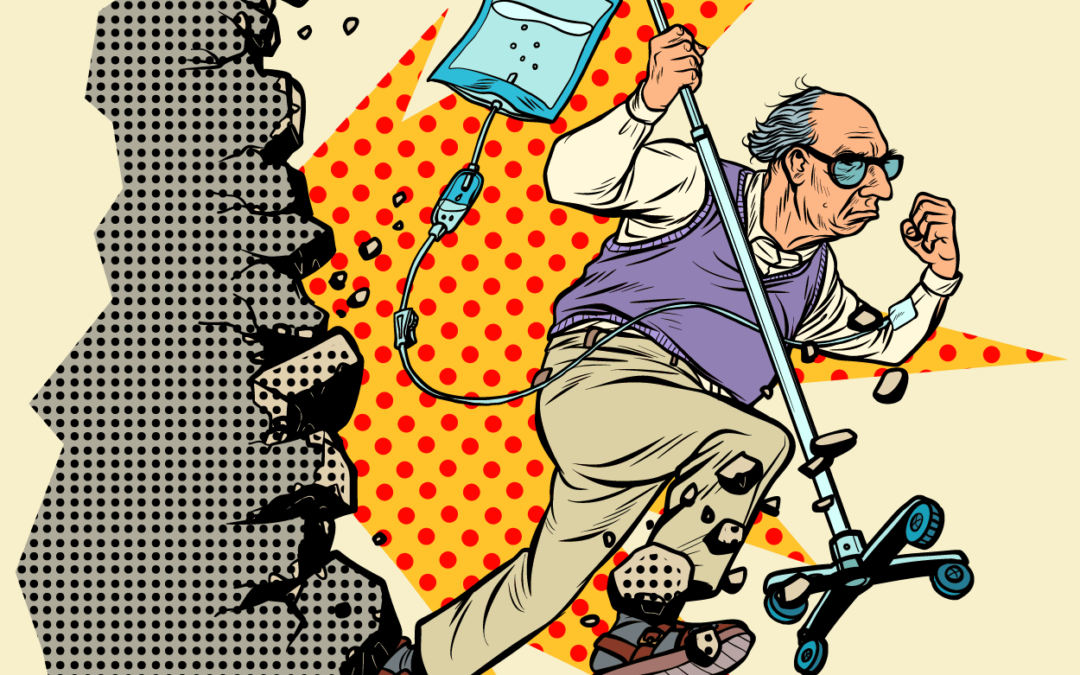Hello, and welcome to Late Life Insights: A series of short, informational pieces on all things aging. I’m Dr. Lisa Rill, your friendly social gerontologist and Executive Director of Senior Life Source. Today’s topic is Ageism.
Ageism is a set of beliefs about a particular age group, which can be positive or negative. More often than not, it takes the form of prejudice attitudes and discriminatory behaviors towards older adults. Studies have shown that negative ageist beliefs inadvertently impact older adults health and wellbeing in numerous harmful ways.
Unfortunately, ageism is prevalent in America and worldwide. It seeps into all aspects of our society, from the language we use, to our employment institutions, politics, entertainment, and even in our healthcare system. Here are just a few basic examples of how ageism reveals itself through different segments of society.
Language: “Elderspeak” ”— speaking slowly, elevated pitch and volume, using simpler vocabulary, and calling them by nicknames such as sweetie. Many older adults perceive elderspeak as demeaning and it can result in lower self-esteem, withdrawal from social interactions, and depression, which only increases social isolation.
Employment: Age discrimination in the workplace can occur in multiple situations. For instance:
- when employers refuse to hire older workers,
- a supervisor fires an older worker and keeps the younger worker who is paid less, or
- an older worker is turned down for a promotion and a younger person is hired because ‘new blood’ is needed in the company.
These acts are illegal, and although it’s often difficult to prove there is something that can be done. The Age Discrimination in Employment Act was created to protect individuals 40 and older from employment discrimination based on age.
Healthcare: Today, 1 out of 5 older adults experiences ageism in health care settings. It is not just demeaning, but can be dangerous by causing both over- and under-treatment of older adults.
- It can result in harmful over-treatment if medical providers offer misguided health recommendations, such as overuse of tests and procedures, which are based only on chronological age (the day/month/year someone was born) without assessing an individual’s functional status, and other comorbid conditions.
- Under-treatment can occur when a healthcare provider assumes the ailments are again caused by chronological age. For example, if a 90 year old man complains about pain in his left knee that impairs his ability to walk, instead of assessing the problem, they say things like “What do you expect? You’re an old man.” Which the man should then reply, “Well, my right knee is also 90 and it’s working fine.”
We rely on modern medicine to extend our lives, and it’s working! The consequence is that we ALL will eventually experience ageism in one way or another. Our ageist views have kept us from living to our full potential in later life, and if we want to continue along the path of longer life it is our responsibility as a society to work towards improving how we view ourselves and others as we age. It starts with acknowledging that ageism exists and recognizing the misperceptions that permeate society. We can work towards overcoming these beliefs by questioning outdated ideas about aging and becoming better informed about the diversities of aging experiences among the older generations. In doing so, we can reimagine ourselves and our abilities, resulting in better care and an enhanced quality of life in our extended years.
Just like we constantly challenge and change our views/words/interactions regarding racism and sexism, we have to do the same when addressing ageism. My hope is that this article encourages you to confront both internalized and societal ageism by examining your own beliefs and perceptions toward our elders, observing the language you use, and challenging misperceptions found in the workplace, political arena, healthcare, and entertainment industry.
**Are you unconsciously helping to perpetuate ageist views through your everyday thoughts and actions? Contact me and I will send you a checklist of specific questions related to ageism.**
Thank you for joining me for Late Life Insights from Senior Life Source, where we provide education on aging for all ages.
Lisa Rill, PhD
Executive Director, Senior Life Source



This is an extremely comprehensible article. My hope is that people actually learn from it and start practicing the suggestions. We will all be there one day. Be kind, be respectful and be open to suggestions.